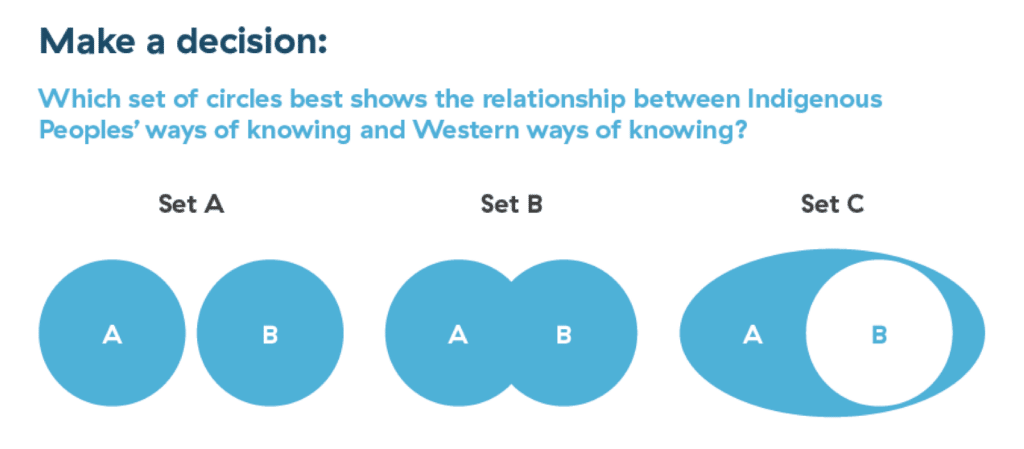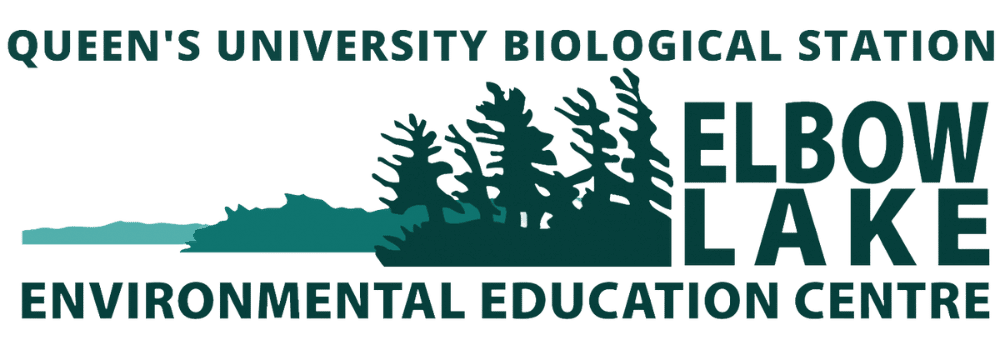Instructions:
- Teacher shares Indigenous and Western perspectives on forests.
| Indigenous: Forests unify life; forests have a spirit; forests are ceremonial grounds; forests can provide spiritual and healing power. | Western: Forests are comprised of biotic and abiotic elements; forests are made up of physical material that assists living things in an ecosystem; forests are full of resources that can be bought and sold. |
- Students look at three different graphics and choose the one that best represents the relationship between Indigenous and non-Indigenous ways of knowing.

Point is that students see how Western knowledge is given primacy.
Fairy Creek Case Study
- Teacher introduces the Fairy Creek Logging Protests as a case study. (There are many other case studies that could be used instead. Teachers should choose issues that are of interest to their students)
- To familiarize themselves with the issue, teachers can review the Teacher Information page in the Fairy Creek Background Information.pdf.
- Teachers can also review the PowerPoint found in Fairy Creek, BC Prompting Discussion Questions ppt.
- Teacher discusses with students how the decision to cut down Old Growth Forest at Fairy Creek was not informed by Indigenous land-based knowledge.
- Teacher continues to discuss with students how things might have been decided differently if informed by two-eyed seeing.
- Teacher should encourage students to dig deep in order to consider the historical context informing this contemporary reality. For instance, Western knowledge informs how things are done now because of colonization and the construction of land as a commodity and IK as being inferior. If we are to become decolonized as a Nation and work towards reconciliation, it is important that we understand this reality. It is also important that through Indigenous land-based practices we come to see different ways of living on and relating to land.



